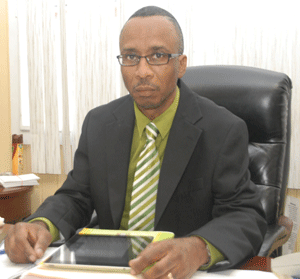I HAVE to go all the way back to my high school debate days to introduce the core concept of what I’m going to be writing about in this week’s column. I want to start by defining the term, “public servant”, not by looking at the terms as a whole, but by first breaking it down to its separate parts.
Let’s start by defining “public”–the first definition from the little dictionary programme I have on my computer says “of or concerning the people as a whole”.
For “servant”, I’d like to look at the definition which says simply, “a person who performs duties for others.”
Before I go further, I would like to take a pause to acknowledge the lives and works of two men who, incidentally, can be acknowledged as exemplary public servants in themselves – former media expert and United Nations consultant, Hugh Cholmondeley, and former Commissioner of Police, Laurie Lewis. My condolences go out to their loved ones in this time of loss, and the hopeful consolation that both men led exemplary lives and left a legacy that will continue to live on.
To get back to the article, I want to make a link between the theme of last week’s article with the theme of this one – public trust. Let me just reprint a summary excerpt of last week’s article, one which captures the general thrust of it:
“Trust is the foundation upon which any human relationship or system of relationships is built and is sustained, whether we are talking about a marriage, a village, or a nation.… We come together and put laws in place based on the premise that those laws are going to govern for the good of all who are faithful to the mutual trust that is agreed to by consensus among us. Trust is the glue that holds all interdependent relationships together and there is probably no more important an institution – outside of the family – in which trust is more critical than in the public service.”
| “Over the past decade in particular,public servants in Guyana have had a significant increase in real income,and have benefited from an increasing number of personal development initiatives…what we have not had is parity in the level of service provided to the public.” |
Whereas, in last week’s article I continued to explore the concept of trust, this week I will explore the concept of ‘public service’, particular from the definitions of “public” and “servant” as I outlined above. A great many of those outside of the public service, as well as many of those within, do not simply possess a mistrust of public servants – as I explored last week – but do not believe that public servants perceive their jobs as being done on behalf of the public, the people they are expected to work for.
Let me put forward a scenario – suppose as a householder you hire a cook to make your food and bring it to you on the hour at every standard mealtime. Whenever you’re ready to eat however, the food, served long after the expected time, is not prepared satisfactorily, is presented in a slapdash manner, and you’re expected to give a generous tip to the cook in order that the situation doesn’t recur. If this doesn’t parallel at least one experience that you’ve had with some arm of public service, then you don’t live in Guyana.
The argument can be made that bad servants are produced through a lack of interest in his or her or his/her pay scale;something must exist to result in the lack of civility in the service, right? This is only partially true and is becoming less so. Over the past decade in particular, public servants in Guyana have had a significant increase in real income, and have benefited from an increasing number of personal development initiatives – more public servants today, for example, have cars (thanks to duty-free concessions in some cases) than at any other point in our history and this includes non-management staff. What we have not had is parity in the level of service being provided to the public.
In conceiving of this article, I considered a fair number of theories of why this is so – only one has stuck with me however. I believe that while bad public service attitudes are absorbed in groups, they are retained and perpetuated by the individual. That’s why it doesn’t matter that there are pay increases, performance incentives, overseas training programmes – the individual public servant retains a behaviour pattern for which there is increasingly less rationale.
The solution? Two types of targeted education – public service and public. The first would be to ensure that the concept of service learning is woven into public service training as well, and in which service is recommitted to in a documented manner, like a public service code of conduct. The second is a public education campaign, one refreshed every couple of years, informing the public what they are to expect from persons calling themselves public servants.
To be continued…



.jpg)









